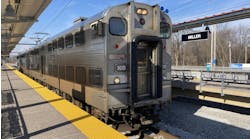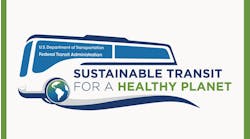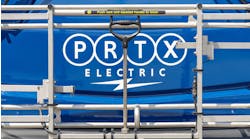A new report by the American Public Transportation Association (APTA) has identified at least $232 billion in critical public transportation investments. Additionally the association analyzed the impact of investment in public transportation and found that $232 billion spent over 10 years would stimulate a 4-to-1 return of $928 billion in economic activity over the next 20 years.
“Infrastructure investment consistently produces big financial returns,” said Gary Thomas, president and executive director of Dallas Area Rapid Transit (DART) at a March 18 press conference. “Every major DART project has proven that. This is the way to move our economy forward.”
The report was released during APTA's annual legislative conference and comes as Congress looks to move an infrastructure bill forward this spring. Last week, the U.S. House of Representatives Transportation and Infrastructure Committee Subcommittee on Highways and Transit held a hearing examining how the federal government’s role in highway and transit policies need to change in order to meet the current and future challenges of the nation’s surface transportation network.
“Bipartisan efforts to enact an infrastructure investment bill will provide a critically important opportunity to address the nation’s growing infrastructure needs,” said APTA President and CEO Paul P. Skoutelas. “APTA is ready to work with Congress and the Administration to enact legislation that includes robust public transportation investment.”
The report includes APTA member-specific data on regional and local public transportation projects in the U.S., from those in need of major repair or maintenance to new priorities including terminal constructions and electric bus fleets. Members identified more than $5 billion in cutting-edge electrification projects that would modernize systems nationwide.
“We’re pleased to see that both Congress and President Trump have said that an infrastructure bill is a major priority,” said David M. Stackrow, APTA Chair. “Significant investment in public transportation will strengthen our communities and advance a better quality of life for residents.”
APTA’s research figures come from three categories. First are projects in the Capital Investment Grants (CIG) pipeline, which are aimed at expanding public transit investment. The Federal Transit Administration released its Fiscal Year 2020 recommendations for the CIG Program on March 15, which included $995 million for projects with existing Full Funding Grant Agreements and more than $494 million for projects that may become ready for the program.
The second category, called Priority Projects, covers an array of projects from construction of transit center and bus garages to expanding the nation’s electric bus fleet, to security improvements, and park and rides. The third category is of state of good repair projects that include capital, safety and operating repairs and upgrades, and replacements of buses and trains. According to the most U.S. Department of Transportation, there is a $90 billion backlog of state of good repair needs.
Chicago Transit Authority (CTA) President Dorval R. Carter, Jr., explained the authority currently has a $12.5 billion backlog of state of good repair and noted that 70 percent of CTA's bus fleet will need to be replaced in the next decade.
“The passage of a federal infrastructure bill is critical for CTA to continue implementing the kinds of large, multi-year projects that stimulate the economy, create stable, good-paying jobs for residents and prepare our city for the demands of the future.”
Nuria Fernandez, general manager and chief executive officer of Santa Clara Valley Transportation Authority (SCVTA) offered a reminder that California has the world's fifth largest economy.
“The importance of the Silicon Valley economy to the region, state of California and the world cannot be overstated,” said Fernandez. “The need for strong transportation infrastructure is critical to maintain worker productivity and on-time delivery of products and services.”
Kevin Quinn, chief executive officer and administrator of the Maryland transit Administration, also noted transit's critical role to the economic development of Maryland and the surrounding region and explained that infrastructure investment is "an investment in the quality of life of all Americans."
Elizabeth Presutti, general manager of Des Moines Area Regional Transit Authority noted that public transit infrastructure is essential to both urban and rural communities.
"With an unemployment rate of 2.4 percent, transit is critical to employment and economic growth. We need the federal government to provide a reliable source of funding to meet the needs of the future,” said Presutti.
“With ridership increasing and growing demand for our services, funding is needed now more than ever to increase our capacity and take riders where they need to go,” said Katharine Kelleman, chief executive officer of Port Authority of Allegheny County. “Failure to meet this demand would be detrimental to growth and investment in our region.”
The full report can be obtained here.




